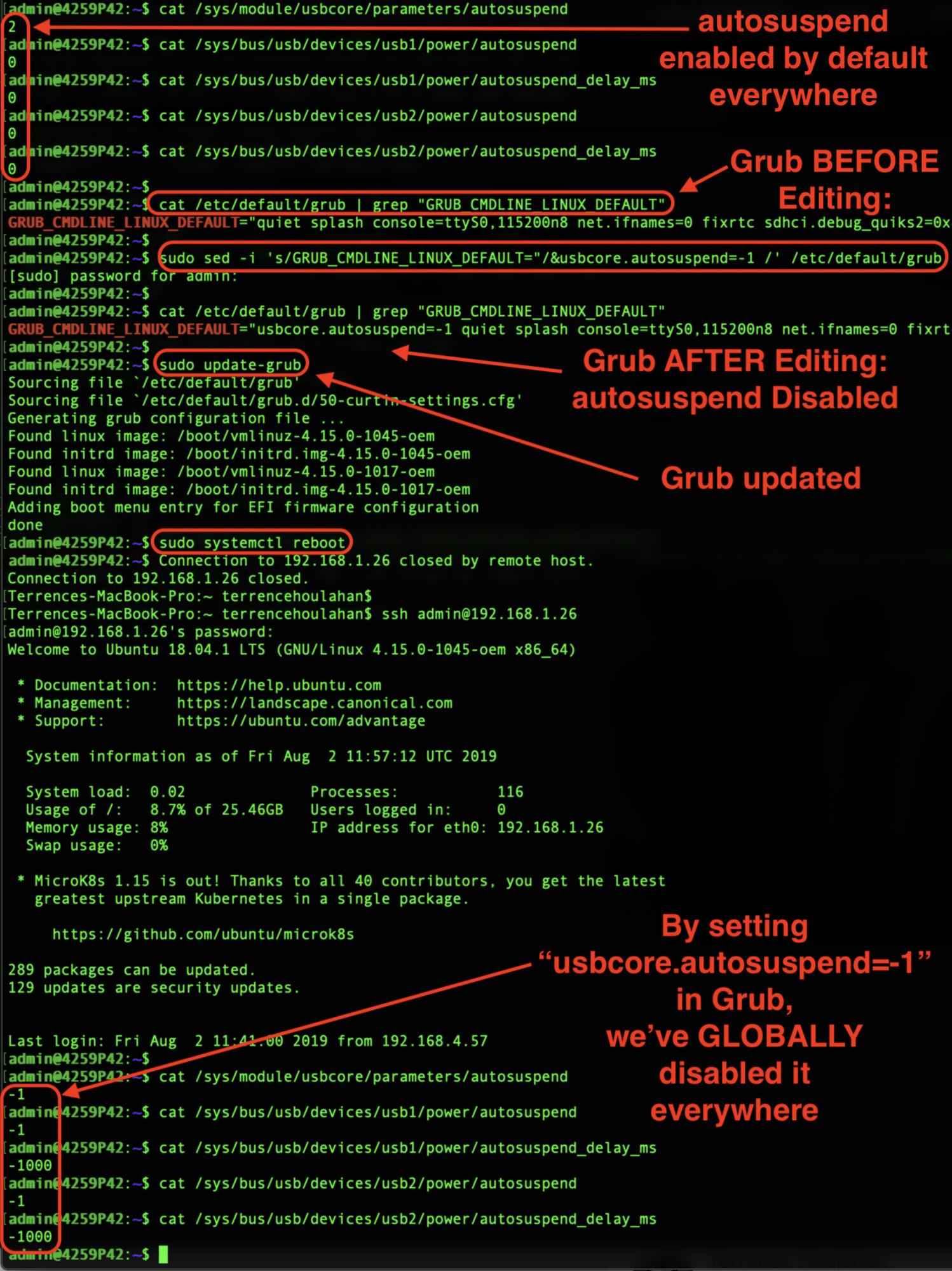The reason why folks post questions such as this is due to the dreaded- indeed "EVIL"- USB Auto-Suspend "feature".
Auto suspend winds-down the power to an "idle" USB device and unless the device's driver supports this feature correctly, the device can become uncontactable. So powering a USB port on/off is a symptom of the problem, not the problem in itself.
I'll show you how to GLOBALLY disable auto-suspend, negating the need to manually toggle the USB ports on & off:
Short Answer:
You do NOT need to edit "autosuspend_delay_ms" individually: USB autosuspend can be disabled globally and PERSISTENTLY using the following commands:
sed -i 's/GRUB_CMDLINE_LINUX_DEFAULT="/&usbcore.autosuspend=-1 /' /etc/default/grub
update-grub
systemctl reboot
An Ubuntu 18.04 screen-grab follows at the end of the "Long Answer" illustrating how my results were achieved.
Long Answer:
It's true that the USB Power Management Kernel Documentation states autosuspend is to be deprecated and in in its' place "autosuspend_delay_ms" used to disable USB autosuspend:
"In 2.6.38 the "autosuspend" file will be deprecated
and replaced by the "autosuspend_delay_ms" file."
HOWEVER my testing reveals that setting usbcore.autosuspend=-1 in /etc/default/grub as below can be used as a GLOBAL toggle for USB autosuspend functionality- you do NOT need to edit individual "autosuspend_delay_ms" files.
The same document linked above states a value of "0" is ENABLED and a negative value is DISABLED:
power/autosuspend_delay_ms
<snip> 0 means to autosuspend
as soon as the device becomes idle, and negative
values mean never to autosuspend. You can write a
number to the file to change the autosuspend
idle-delay time.
In the annotated Ubuntu 18.04 screen-grab below illustrating how my results were achieved (and reproducible), please remark the default is "0" (enabled) in autosuspend_delay_ms.
Then note that after ONLY setting usbcore.autosuspend=-1 in Grub, these values are now negative (disabled) after reboot. This will save me the bother of editing individual values and can now script disabling USB autosuspend.
![screengrab: autosuspend values Before and after globally editing]()
Hope this makes disabling USB autosuspend a little easier and more scriptable-



power/levelis deprecated now; usepower/controlinstead. (power/wakeupis ok.) Furthermore, it accepts only "auto" and "on", not "suspend" any more. "auto" is smart enough, and if the power isn't turned off while idle, it's the device's fault. Anyway you can't turn the power off manually. For more, see the answer below by tlwhitec and the kernel's doc: kernel.org/doc/Documentation/usb/power-management.txt – Yb